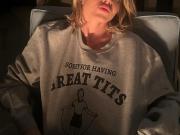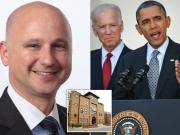A new study finds that people belonging from upper-middle to upper class tend to be unaware of their class privilege. When they are shown evidence of the same, they tend to provide excuses based on merit focusing on personal struggles and hard work.
Explaining how a social class provides privilege L. Taylor Phillips, Assistant Professor at NYU and co-author Brian S. Lowery said that "those at the upper end of the income and education distributions garner unearned advantages, based on their class status alone."
They published the study in the Journal of Personality and Social Psychology titled "I ain't no fortunate one: On the motivated denial of class privilege," after they conducted a series of experiments by recruiting hundreds of adult US citizens from an elite West Coast university based on their income and classified them as upper-middle or upper class.

Class Privilege
A group of participants read statements on how general inequity of class privilege had a connection to more educational opportunities. Later, they answered questions that measured their personal hardships in life. Another read about unearned advantages from people who make high incomes.
After this, the researchers found that the group that read about class privilege reported more life hardships than those who read about general inequity. People read that the top 10 percent of income earners had unearned advantages in life, and those who felt they were a part of that top 10 percent, they reported working harder at their job than those who did not.
The second half of the study investigated the relationship between personal hardships and class privilege, where a separate group of participants were given information on class privilege or general inequality and were asked to answer a questionnaire on personal merit and life hardship.
Researchers found interesting results. Exposing the class privilege of upper-middle and middle-class people threatened their personal merit, that is, the feeling of accomplishment without any outside assistance, explaining why participants reported greater life hardships when they had low personal merit.
Class Privilege Evidence Threatens One's Sense of Personal Merit
In the experiment, when participants were not allowed to cite their life hardships, those who read about class privilege claimed that they gave more effort on difficult tasks. Based on the results, the authors suggested that the evidence of class privilege threatens one's sense of personal merit, leading to rationalizing success by citing the perseverance of difficult tasks and hardships.
"We find that even in response to direct evidence of [class privilege], the ideology of meritocracy motivates people to claim hardship, potentially blinding themselves and others to the privileges of class," the authors concluded in their research paper.
"In this way, people may legitimize social class inequity as mere inequality: they address the discomfort associated with naked privilege, by cloaking it with the fig leaf of hardship."









